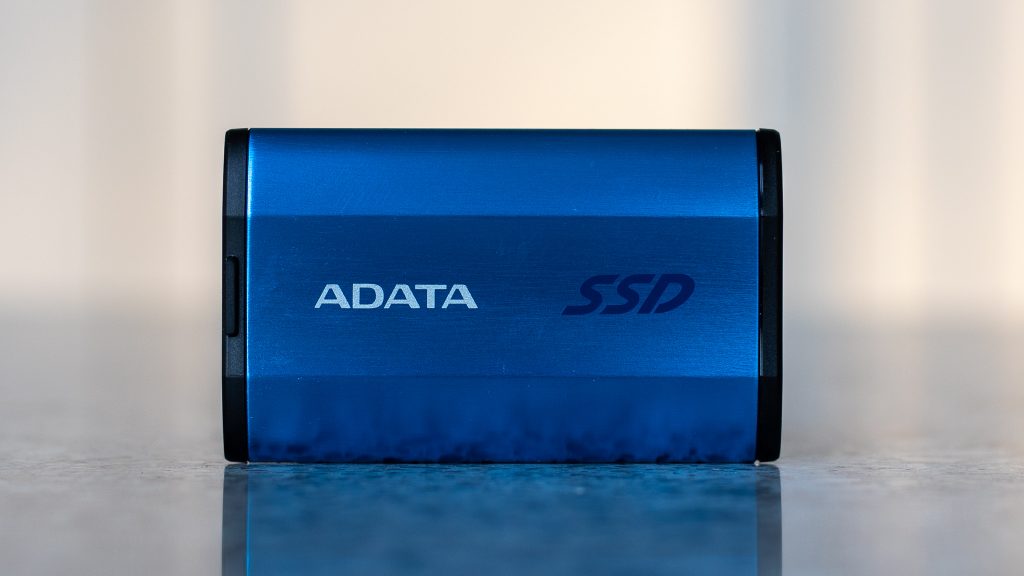USB 3.2 Gen 2 with Type-C has become the norm as of late and more systems these days are being sold with USB-C or Thunderbolt included. Simply put, this means faster transfer speeds between your system and external storage, this storage being bus powered and not requiring a separate adapter and cable to power the device. ADATA has recently released its SE800 External SSD which fits this description and, in fact, it is extremely small at just 1.4oz and measuring 2.8″x 1.7″x0.5″.

The SE800 is available at Amazon now and is available in 512GB and 1TB capacities, both having performance specs of 1GB/s read and write performance. They are available in blue and black and IP68 approved as dustproof and waterproof. In plain English, devices backed by an international standard rating of IP68 are deemed fit enough to withstand dust, dirt and sand, and are resistant to submersion up to a maximum depth of 1.5m underwater for up to thirty minutes.

Included in the packaging for the SE800 are a Type-C to Type-C cable, a Type-C to Type-A cable, Quick Start Guide and the SE800 itself.

Checking Amazon, pricing for the SE800 is $129.99 (512GB) and $209.99 (1TB). This SSD comes with a 3-year warranty and is fully compatible with Windows, MacOS, Android, XBox one and PS4.
ATTO Disk Benchmark is perhaps one of the oldest benchmarks going and is definitely the main staple for manufacturer performance specifications. ATTO uses RAW or compressible data and, for our benchmarks, we use a set length of 256mb and test both the read and write performance of various transfer sizes ranging from 0.5 to 8192kb. Manufacturers prefer this method of testing as it deals with raw (compressible) data rather than random (includes incompressible data) which, although more realistic, results in lower performance results.
Initial ATTO performance is bang on with the SE 800 reaching 1GB/s read and write disk transfer speeds as advertised.
CRYSTAL DISK BENCHMARK VER. 7.0.0 X64
Crystal Disk Benchmark is used to measure read and write performance through sampling of random data which is, for the most part, incompressible. Performance is virtually identical, regardless of data sample so we have included only that using random data samples.
 The SSD Review The Worlds Dedicated SSD Education and Review Resource |
The SSD Review The Worlds Dedicated SSD Education and Review Resource | 
Great review!! Sounds like I will be purchasing this SSD in the future!